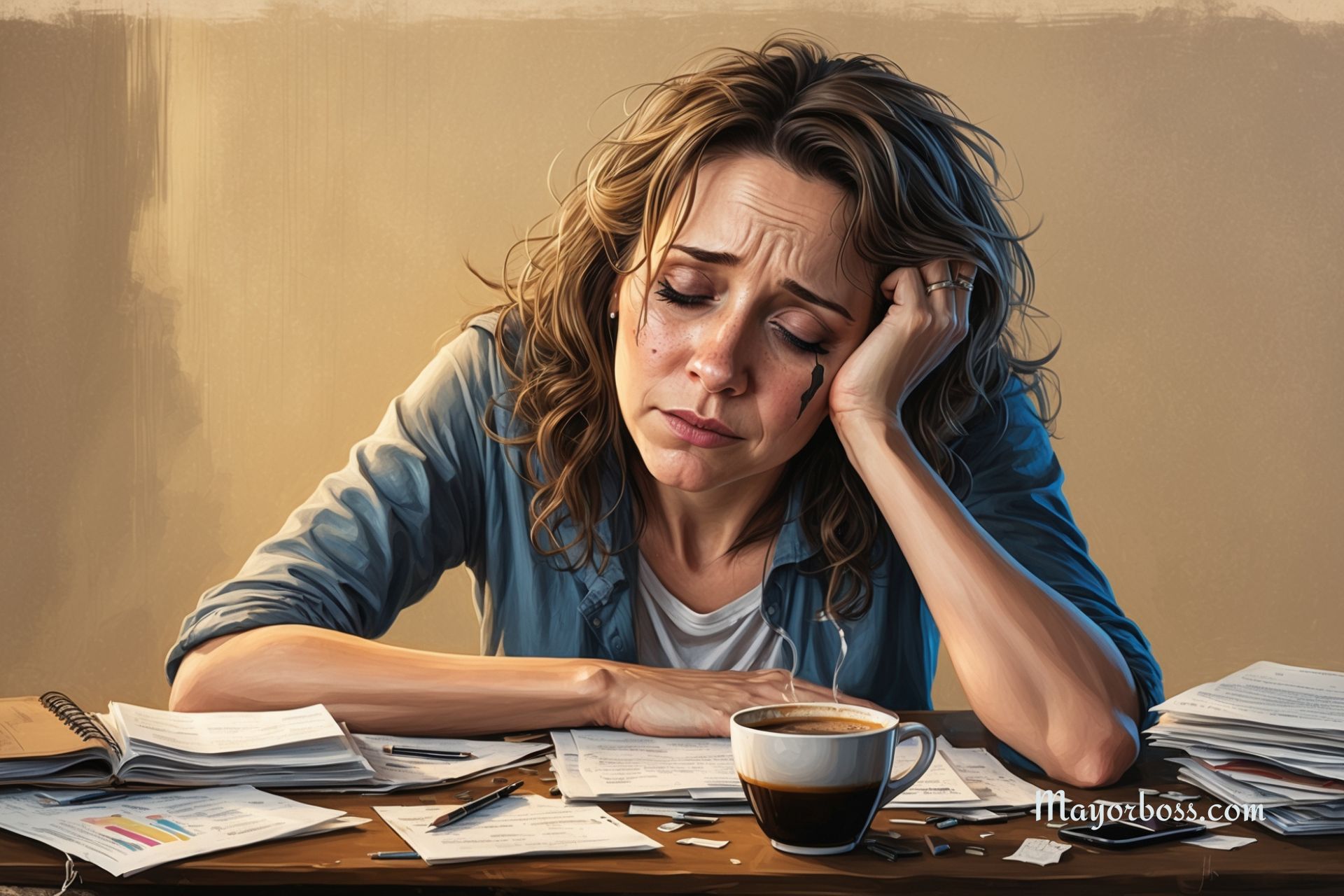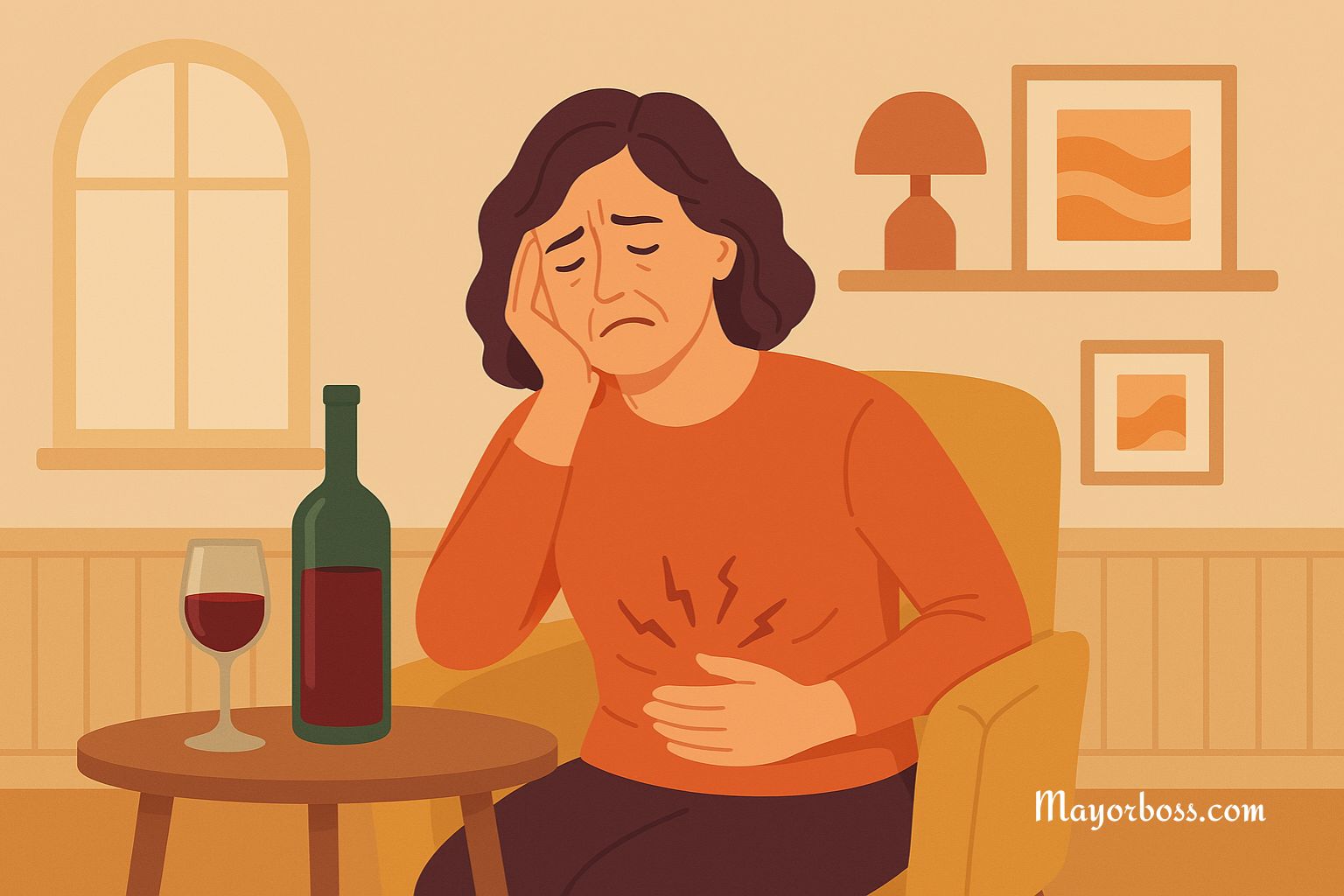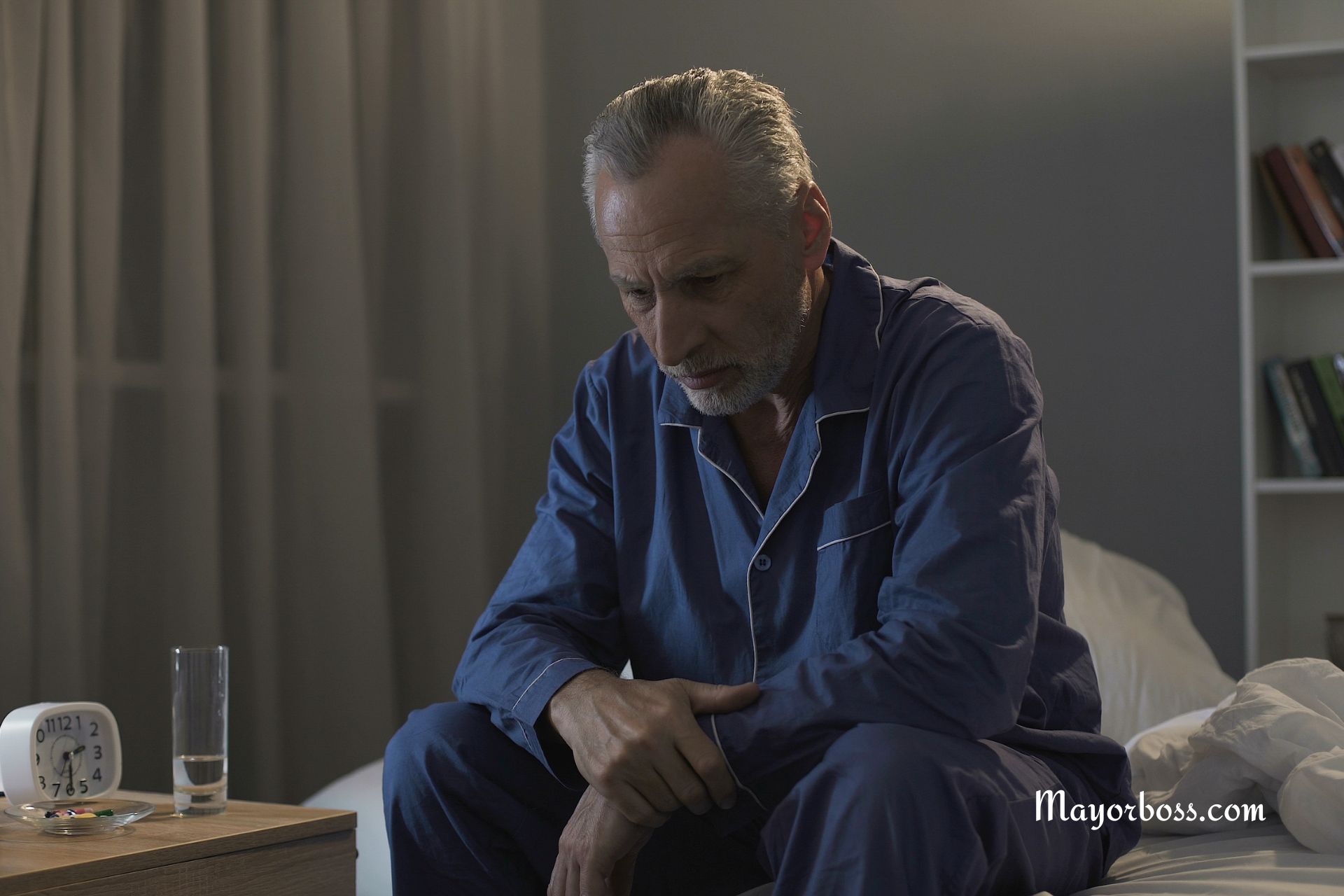Signs You’re Suffering from Emotional Exhaustion
Emotional exhaustion is more than just feeling tired; it’s a state of being drained mentally and physically to the point where it starts affecting your ability to function day to day. You’ve probably heard people talk about “burnout,” but emotional exhaustion is a step further. It hits when stress, whether from work, relationships, or life in general, piles up and overwhelms your capacity to cope.
This condition can be sneaky because it doesn’t happen overnight. It’s gradual, often building up over time until you’re completely worn out and unable to keep going without feeling utterly exhausted. If you’ve ever felt emotionally drained and unable to bounce back, you might be dealing with emotional exhaustion.
Scroll through below to learn the telltale signs that could indicate you’re on the verge of burning out emotionally.

You Are Always Feeling Tired No Matter How Much Rest You Get
One of the first things you’ll notice with emotional exhaustion is how tired you feel—even after a full night’s sleep. It’s the kind of fatigue that no amount of rest seems to fix. This isn’t your usual “I stayed up too late” tiredness. It’s persistent, and it feels like a weight is dragging you down, making it hard to get out of bed and face the day. Even if you take naps or rest more than usual, it feels like you can never fully recharge.
According to Mayo Clinic, this deep-seated exhaustion is a hallmark sign of emotional burnout. Your body and mind have been working overtime trying to cope with stress, and now they’re running on empty.
You Feel Detached From Work, Family, or Friends
When emotional exhaustion kicks in, you may start to feel like you’re on autopilot. You go through the motions at work, with your friends, or even with family, but you feel disconnected. Conversations don’t interest you like they used to, and activities that used to bring you joy feel more like chores. You might notice yourself emotionally distancing from people you care about or simply not caring about the things that once brought you happiness.
This detachment is your brain’s way of trying to protect you from more stress. It’s like shutting down parts of yourself to conserve energy—but it comes at a cost. The more you disconnect, the harder it becomes to reconnect with the people and things you love.
You Find Yourself Getting Easily Irritated or Angry Over Small Things
Another sign of emotional exhaustion is irritability. The smallest inconvenience can send you into a tailspin, and you find yourself snapping at people more often. Maybe your coworker made a harmless comment, or your partner didn’t put away the dishes, and suddenly you’re unreasonably upset. These reactions are signs that your emotional reserve is depleted and your ability to handle stressors is severely compromised.
The MedicalNewsToday reports that irritability is a common symptom of chronic stress and emotional exhaustion. When your emotional tank is empty, you have very little patience left to deal with the daily annoyances that come your way.
You Have Trouble Concentrating or Focusing on Tasks
Finding it hard to stay focused? Emotional exhaustion makes it tough to concentrate or get anything done. You might start a task only to find your mind wandering. Or maybe you’re in the middle of a conversation and suddenly forget what you were even talking about. This “brain fog” is a result of your mind being overwhelmed by stress, leaving little room for cognitive functions like concentration or memory.
Research in one study found that emotional exhaustion directly affects cognitive performance. When your mind is stressed, it’s too busy processing all the overwhelming emotions to focus on tasks or retain new information.
You Feel Like Nothing You Do Matters Anymore
A sense of hopelessness is a significant sign of emotional exhaustion. If you’ve ever thought, “What’s the point?” when it comes to work, life, or even your relationships, that’s a clear sign something is off. It’s like no matter what you do, it feels like it doesn’t make a difference anymore. This feeling can lead to a lack of motivation, making it hard to accomplish even the simplest tasks because they feel meaningless.
Per the National Library of Medicine, feelings of hopelessness are linked to prolonged emotional stress, and they can often indicate the onset of more serious conditions like depression. This is why it’s essential to recognize this sign early and seek support.
Your Sleep Patterns Are All Over the Place
Sleep disturbances are a massive red flag when it comes to emotional exhaustion. You might be getting plenty of sleep but still wake up feeling tired, or you might find yourself struggling with insomnia. Maybe you’re sleeping too much or not at all—it varies from person to person. Emotional exhaustion messes with your body’s internal clock, making it difficult to fall asleep or stay asleep, even when you’re dead tired.
According to research published in 2023, emotional exhaustion is often accompanied by sleep problems because your mind is racing with stress, making it difficult to fully relax. If your sleep schedule has been erratic for a while, it might be time to consider whether stress is at play.
You Have Physical Symptoms Like Headaches or Muscle Pain
Emotional exhaustion doesn’t just affect your mind; it can also have a significant impact on your body. Many people who are emotionally drained experience physical symptoms like headaches, muscle tension, or even stomach problems. This is because chronic stress causes your body to stay in a state of heightened alert, which can lead to physical discomfort over time.
Experts at the Cleveland Clinic point out that when your body is constantly in “fight or flight” mode due to stress, it starts to wear down, leading to physical symptoms like headaches or even digestive issues. Your body is trying to tell you it needs a break.
You Feel Like You Can’t Keep Up With the Demands of Your Life
When you’re emotionally exhausted, everything feels like too much. Even the simplest tasks can feel overwhelming, and it feels like there’s no way you can keep up with the demands of your life. Whether it’s work, school, family, or social obligations, you’re constantly falling behind, and it feels like you’ll never catch up. This sense of overwhelm is a clear indicator that you’re reaching the end of your emotional rope.
Research suggests that when people are under chronic stress, their ability to manage life’s demands decreases, leading to feelings of helplessness and inadequacy. If you feel like life’s demands are too much, it’s time to take a step back and reevaluate.
You’ve Lost Interest in Things That Used to Make You Happy
Emotional exhaustion can make you feel numb, even to things that used to bring you joy. Hobbies, activities, and even spending time with friends can start to feel like a burden. This lack of enjoyment is a major sign that you’re emotionally burned out. It’s like your passion for life has been drained right out of you, leaving you feeling empty and indifferent.
Some literature suggests losing interest in activities you once enjoyed is often linked to chronic stress and emotional exhaustion. When your emotional energy is depleted, it’s hard to find joy in anything.
What You Can Do If You’re Experiencing Emotional Exhaustion
If any of these signs sound familiar, don’t brush them off. Emotional exhaustion can seriously affect both your mental and physical health if left unchecked. The first step is acknowledging what’s happening and reaching out for help. Talk to a doctor or therapist who can guide you through managing your stress and developing strategies to recharge emotionally.
Additionally, self-care should be a priority. This could include setting boundaries, taking breaks, or even taking a vacation to give yourself time to rest. But the most important thing is not to ignore these signs. Emotional exhaustion won’t just go away on its own, and it’s crucial to take action before it leads to more severe mental health issues.






